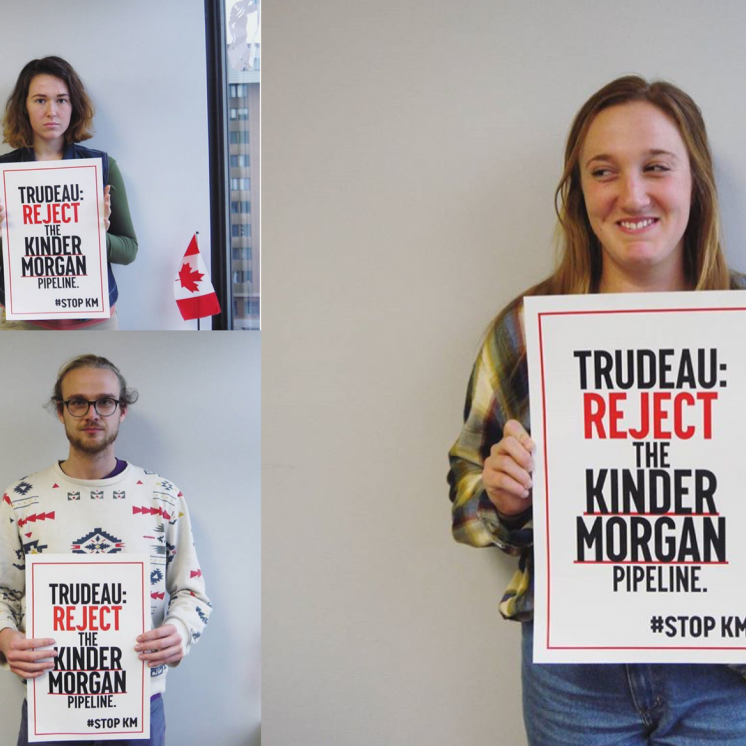
Why Divest Dal opposes Kinder Morgan
It will hurt First Nations communities, the environment and the economy
Justin Trudeau took to the national stage on Tuesday, making his final decision on three major pipeline projects. He began by highlighting the Liberal government’s commitments made last fall to clean energy and reconciliation with First Nations communities. He then approved two major pipeline projects, the most significant of which was the Kinder Morgan Trans Mountain expansion. This expansion, which would run from Edmonton, AB to Burnaby, BC, has gained media attention in the past few months due to protests, sit-ins and vigils opposing the project, which have occurred in 45 cities across Canada.
Members of Divest Dal organized and participated in many of these actions this fall in an effort to convince the Liberals to reject Kinder Morgan. We held a sit-in in Halifax MP Andy Fillmore’s office, which was followed by a personal meeting with him; we wrote letters to Ministers responsible for the pipeline portfolio; we held a vigil for the pipeline to which over 50 people showed up in the rain; some of us traveled to Ottawa in October and were arrested on Parliament Hill.
Why are we so opposed to this project? From every angle, Kinder Morgan is an absolute failure.
First, the issue of consent: the Tsleil Waututh First Nation, through whose land the project passes, have not given their consent to the project. Nor have the people of Vancouver, who will bear the brunt of the tanker traffic this pipeline will generate.
The Prime Minister also mentioned “science” and “evidence” in his announcement. The National Energy Board approved the pipeline according to a gutted process that was instituted in the Harper era, and that Trudeau promised to change before any new pipelines were built.
Absolutely no evidence arose from that process suggesting that diluted bitumen (the substance passing through the pipeline) can be cleaned up if it spills. Kinder Morgan has no idea how to do it, and the government has no idea how to do it. The existing Trans Mountain pipeline along this route has had four spills in the past 11 years. Not if – but when – this pipeline spills, it will be a natural catastrophe, and once again First Nations communities who rely on the land and water for survival will bear the brunt of the disaster.
But, some say, we must take risks for the sake of our economy – we need to create jobs for oil workers! Unifor, the union representing oil sands workers, opposed the Kinder Morgan project. This is because the pipeline itself will only create temporary and precarious jobs while it’s being built. The secure, long-term jobs that oil sands workers need are either in the green energy sector (and there are now more jobs in that sector than in the oil sands), or in bitumen refineries. The pipeline transports raw bitumen to tidewater and outsources those refining jobs to Asia and elsewhere. So for whom is this pipeline really being built?
The decision was between siding with fossil fuel companies or with climate science, workers, Indigenous peoples, youth, and the majority of Canadians who are ready to transition to renewables. Choosing to expand fossil fuel infrastructure means we will be unable to meet the emissions limits that we committed to in Paris, exceeding our carbon budget even further, and contributing to climate change.
We know this isn’t the end. As we’re seeing at Standing Rock, government approval does not mean that a project will go forward. At Divest Dal, we’re going to keep fighting in solidarity with the west coast First Nations that are leading the way to ensure this pipeline will never be built.






